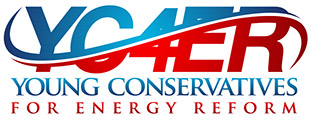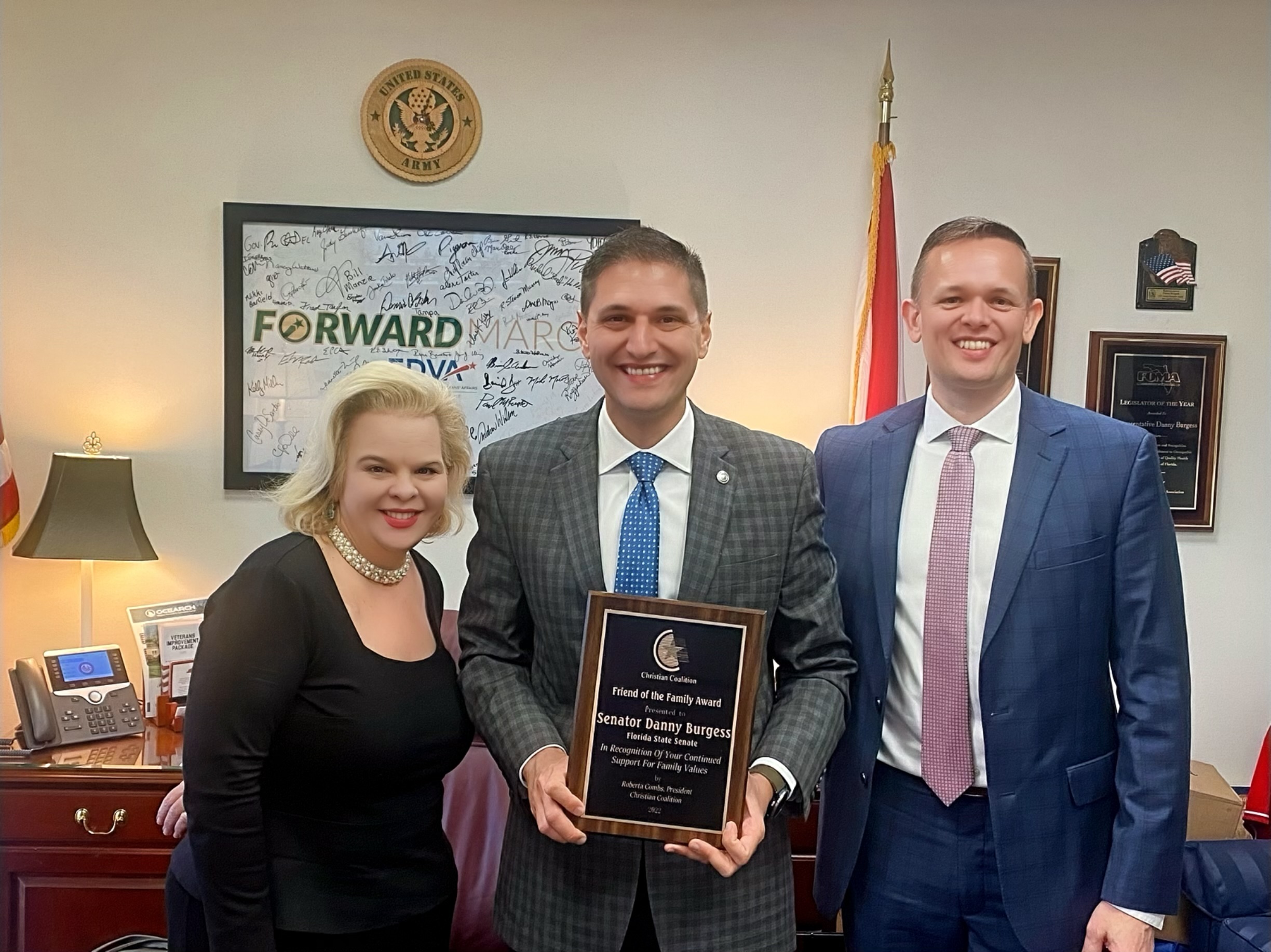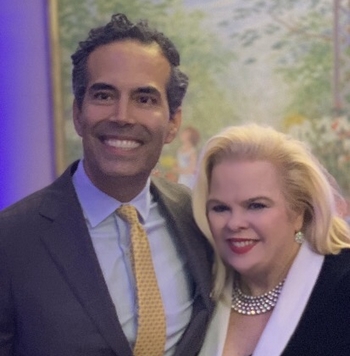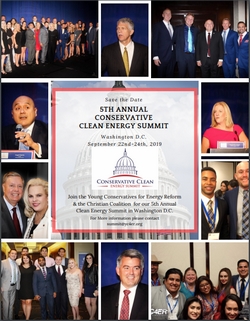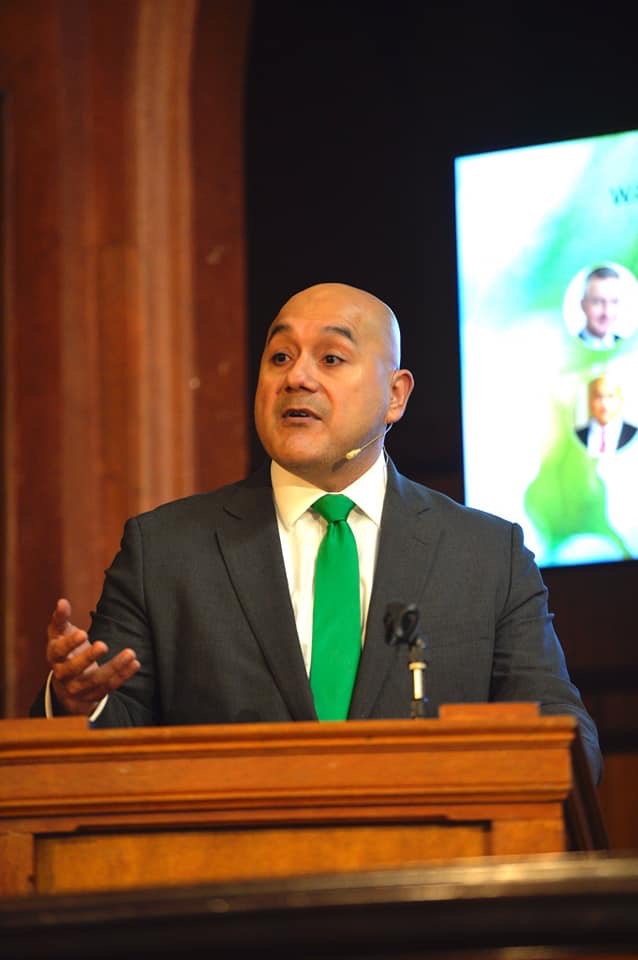| Republican activists and lawmakers gathered yesterday just off Capitol Hill to talk about folding low-emissions energy policy into the conservative playbook.
The Conservative Clean Energy Summit, organized by the Christian Coalition, framed renewable energy policy in terms of how it can advance the right’s fundamental priorities. National security? You bet, military veterans said. Rural and Rust-Belt jobs? These are careers, wind and solar associations said. What about the unborn? They’re helped the most, Christian activists said. And climate change? Not so much. The panelists and keynote speakers preferred to talk around that issue. They also avoided criticism of President Trump, who has committed to boosting fossil fuel jobs, has proposed a budget to slash renewable energy research funding and is mulling tariffs that the solar industry considers an existential threat. Instead, conservatives said the downward trend of fossil fuels and the rise of renewables — regardless of which party holds the White House — means Republicans need to develop an agenda beyond saying “no” to Democrats. And when that agenda comes together, elected officials need to know the base won’t revolt against them, said Keith den Hollander, the Midwest director for the Christian Coalition. He pointed to Michigan, where Republicans control the governor’s mansion and both legislative chambers. Last year, the state boosted its renewable energy standard to 15 percent by 2021 from 10 percent (Energywire, Dec. 16, 2016). Those GOP politicians might not have been comfortable doing that a few years ago, he said, characterizing their thinking like this: “We like this idea of mitigating our risk by using more renewable energy, but we don’t know if the grass roots are behind us. We don’t know if people in our district understand why this is important.” That’s why activists who are known more for opposing same-sex marriage and abortion are wading into energy policy. They’re letting Republican officeholders know there’s conservative support for more than oil and gas, especially when renewable energy policy is framed as reducing regulations (like wind turbine setback requirements) or bolstering national security (for instance, by lowering dependence on foreign oil). That’s the same reason they’re treading carefully around the issue of climate change. “You have to know your audience, and you have to know the keywords that trigger them to react either negatively or positively,” Ash Mason, the Christian Coalition’s Southeastern regional director, said during a panel on how to talk to lawmakers. Climate change is one of those phrases, he said. So instead, he talks about energy policies that could appeal to lawmakers regardless of their feelings on the issue. “That’s a refreshing thing [for lawmakers] when we’re so partisan right now … I say, ‘I’m not asking you to pick a side; I want you to work together with me by making America great again,'” he said. “If I come in there and say, ‘I’d like to talk to you about climate change’ — immediately the hair raises on the back of their neck and they kinda shut down listening.” Likewise, the Republican lawmakers who spoke yesterday touted renewable energy’s potential for jobs rather than its role in mitigating global warming. Sen. Rob Portman (R-Ohio) said the country has “missed the boat” by not doing more to boost energy efficiency. “When you look at it from a Christian Coalition point of view, this is a classic example of being able to take the abundance that God has blessed my state and our country with and using it more efficiently,” he said. “I’m a conservative, and I think conserving those resources should be something that we all are able to focus on, again, on a nonpartisan basis.” Agreeing on the goals might be easier than the policies. Sen. Lindsey Graham (R-S.C.) — who was scheduled to speak but canceled — has proposed taxing carbon, and some speakers said that could be a good idea. Maggie Lemmerman, a lobbyist for the American Wind Energy Association who used to work for Arkansas Sen. John Boozman (R), said a carbon tax might be a few years away from having a serious chance of becoming policy, but it’s something conservatives should prepare to engage with. “It’s a conversation that’s starting to happen in some circles and behind closed doors,” she said. “Now’s the time to start having that conversation and start to think about why, as conservatives, we should be lowering our carbon footprint and why for all the different reasons that’s important.” Polls highlight the narrow tightrope these conservatives are walking. Most Americans say climate change is happening and the government should do something about it — but a majority of Republicans aren’t there yet, and most Americans oppose paying more for climate policies (Climatewire, Oct. 3). Conservative activists might not be emphasizing climate change, but it’s a piece of the conversation, said Tyler Duvelius, the Christian Coalition’s Ohio state director. |
“We’re all eating at the same table,” he said. “Why we’re at that table might be a little different, but the fact of the matter is we all showed up.”
